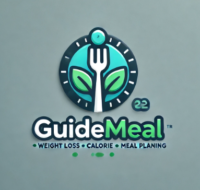Journaling can really help you crush your weight loss goals! 📓 It keeps you aware of what you eat and helps you spot patterns, like late-night snacking. Have you ever noticed how stress affects your choices? Writing down your feelings can reduce that stress. Plus, tracking your meals and workouts boosts motivation and accountability. Set aside just a few minutes each day to jot down your thoughts and goals. 📈 When you celebrate small wins, you build confidence. Isn't it exciting to reveal your potential this way? Stick around, and you'll find out more tips on making journaling work for you!
Key Takeaways
- Journaling increases awareness of eating habits and emotional triggers, helping to identify patterns that lead to unhealthy choices.
- It boosts motivation by tracking progress and reminding you of your weight loss goals.
- Writing about feelings reduces stress, which can prevent emotional eating and promote healthier decisions.
- Documenting meals and workouts fosters accountability, making you more likely to stick to your commitments.
- Reflecting on entries helps you learn from setbacks and celebrate successes, reinforcing positive habits.
Benefits of Journaling for Weight Loss

Journaling for weight loss offers a range of benefits that can enhance your journey. Have you ever wondered how putting pen to paper could change your habits? When you jot down what you eat, how you feel, and your activities, you gain a clear picture of your daily choices. This awareness can help you spot patterns, like late-night snacking or emotional eating. Additionally, incorporating meal preparation techniques into your journaling can further support your weight loss efforts by helping you plan nutritious meals.
Tracking your progress can also boost your motivation. Imagine seeing how far you've come! Each entry is a step forward, reminding you of your goals. Plus, writing about your feelings can reduce stress, a common roadblock to weight loss.
Sharing your goals in your journal might even encourage accountability. How does it feel to commit to something? You might find it easier to stick to your plan when you've documented it.
Lastly, taking a moment to reflect can provide clarity. What worked well this week? What didn't? By regularly reviewing your entries, you can make smarter choices moving forward. So, grab that journal and start writing! Your journey to weight loss can become clearer, more organized, and a lot more fun.
How to Start a Journaling Habit
Starting a journaling habit can feel intimidating, but it doesn't have to be. You can begin by setting aside just a few minutes each day. Think about what you want to write: your meals, feelings, or even your goals. Why not start small? A simple notebook or a note on your phone works great!
Here's a quick table to help you get started:
| Step | Action |
|---|---|
| 1. Set a Time | Choose a daily time, like morning or night. |
| 2. Keep It Simple | Write just a few sentences to start. |
| 3. Be Consistent | Try to journal daily, even if just a little. |
Have you ever thought about how writing can help clarify your thoughts? You might find it easier to spot patterns in your eating habits or emotions. Remember, this is your journey! Don't worry about perfection; just enjoy the process.
As you fill those pages, you'll likely feel more in control of your weight loss goals. So grab that pen or device, and let's get started! 📝
Effective Journaling Techniques

To make the most of your journaling experience, incorporate some effective techniques that can enhance your focus and insights. Integrating journaling with your nutrition and fitness goals can provide deeper reflections on your progress, helping you to identify how your meals and exercise routines impact your weight loss journey. You want your journal to be a helpful tool, right? Here are four simple techniques to get you started:
- Set a Specific Time: Choose a regular time each day to write. Consistency helps make journaling a habit.
- Write Freely: Don't worry about grammar or spelling. Just let your thoughts flow! This is your space to express yourself without judgment.
- Use Prompts: Sometimes, you might feel stuck. Use prompts like "What made me happy today?" or "What challenges did I face?" to spark your creativity.
- Reflect and Review: At the end of each week, take a moment to read what you've written. What patterns do you notice? What can you learn about your habits? Consider how your journaling can align with structured meal planning to support your health goals.
Tracking Progress and Accountability
Keeping track of your progress is essential for staying motivated on your weight loss journey. When you journal, you can easily see how far you've come. Isn't it encouraging to look back and realize you've lost weight or made healthier choices? By writing down your daily meals, workouts, and feelings, you create a clear picture of your efforts. Additionally, using tools like a meal planning notebook can help you organize your meals and grocery lists, making it easier to stick to your healthy eating goals.
You might wonder, "How can I hold myself accountable?" Simple! Share your journal with a friend, or join a support group. When someone else knows your goals, you're more likely to stick to them. Plus, it feels great to celebrate small wins together! 🎉
Setting specific goals in your journal can also help you focus. Instead of saying, "I want to lose weight," try writing, "I'll walk 30 minutes a day." This makes it easier to track your progress.
Don't forget to reflect on your journey. What worked? What didn't? Understanding your habits can guide you to better choices. Remember, weight loss is a marathon, not a sprint. Celebrate your progress, stay accountable, and keep writing! You've got this!
Overcoming Challenges Through Reflection

Amidst the ups and downs of your weight loss journey, reflection can be a powerful tool for overcoming challenges. When you take time to think about your experiences, you gain insight into what works and what doesn't. Have you ever wondered why certain days feel harder than others? Journaling helps you explore these feelings, making it easier to find solutions.
Here are four ways reflection can aid your weight loss journey:
- Identify Triggers: What situations make you reach for unhealthy snacks? Recognizing these can help you manage them better.
- Set Realistic Goals: Reflect on your progress. Are your goals achievable? Adjust them if needed to stay motivated.
- Celebrate Small Wins: Have you noticed any positive changes? Writing them down boosts your morale and reinforces good habits.
- Learn from Setbacks: Instead of getting discouraged, ask yourself what you can learn from your slip-ups. This can make you stronger and more resilient.

